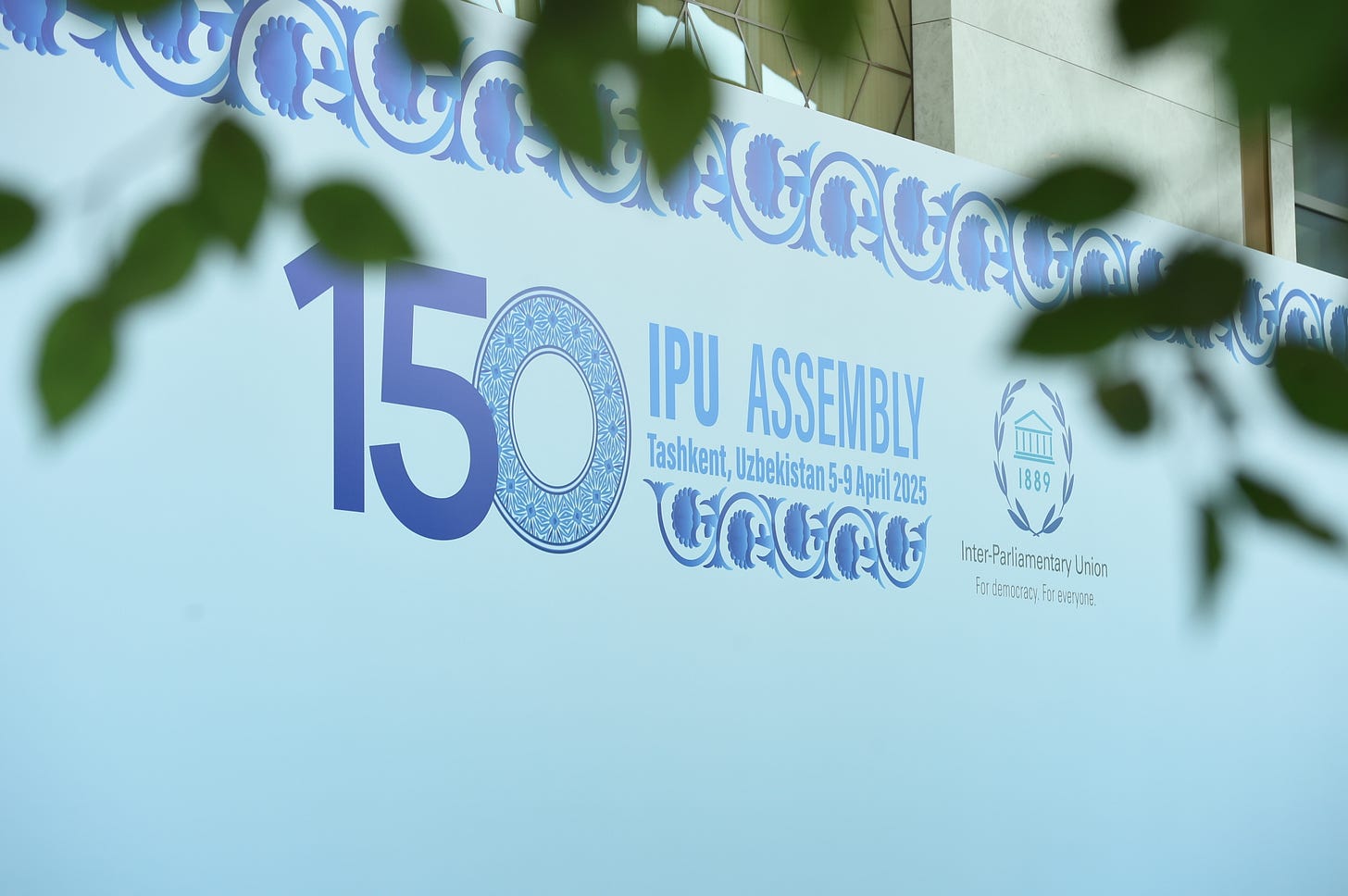Climate Science: MPs Want More Access to Research
Are our parliamentarians getting enough scientific evidence to make informed decisions? A recent global survey suggests there might still be gaps, especially when it comes to climate science.
Yesterday, I shared the key findings from the first global survey of MPs on evidence-informed policymaking, with the Inter-Parliamentary Union Working Group on Science and Technology at their meeting in Uzbekistan.
Over half of the surveyed MPs expressed a desire for greater engagement with scientific research. This is noteworthy considering the environment and climate topped the list of areas where they utilised research last year. Yet, the demand for more data in these fields remains high.
Why the thirst for more climate science?
Despite using research on environmental matters more than any other topic, MPs still feel they need more. This was highlighted in the first global survey of Members of Parliaments on their attitude towards scientific research and its use in parliamentary work.
While a staggering 54% of respondents wanted more access to research, caution is needed when interpreting these results. The survey was voluntary and completed by a self-selecting group of parliamentarians who already have a high understanding of scientific evidence. Yet, it still supports the view that there is a strong appetite for evidence-informed decision-making across the globe.
The survey revealed interesting insights into the topics where MPs are using scientific research. The environment and climate change were at the forefront, with 67% of MPs relying on research in these areas over the past year. Other notable areas included business/economy (45%), education, foreign policy, and technology (all at 42%). On the flip side, areas like mobility and transport (16%), tourism (14%), and maritime and fisheries (14%) saw the least use of scientific research.
When it came to fields where MPs wanted more access to research, the environment, climate change, and natural resources led the pack (16%). Close behind and understandably were technology and artificial intelligence (14%). Interestingly, despite substantial usage of scientific research in education (42%) and health (39%), only 5% and 4% of MPs respectively sought more information in these areas. This might indicate that those presenting education and health research are meeting the needs of MPs more effectively than those handling climate-related matters.
Credibility in research sources was crucial for MPs, with 63% selecting it as the most important factor in deciding whether to use a piece of research. It was followed closely by the manner in which research is presented (length, clarity, ease of understanding) and the importance of the issue to constituents.
The survey results underscore the critical role of scientific research in legislative work, committee work, and parliamentary debates. An overwhelming 92% of respondents agreed or strongly agreed that research has been useful in their parliamentary work, highlighting the importance of evidence-based information in shaping policies and legislation.
Despite high engagement with scientific research, several challenges remain. Time constraints and lack of staff support were frequently cited as barriers to effectively using scientific evidence. The survey also highlighted the need for more policy-focused presentations of research to make it actionable for decision-makers.
The study, conducted by the Inter-Parliamentary Union (IPU) Working Group on Science & Technology with guidance from Dublin City University, calls for increased efforts to facilitate access to scientific research and offers opportunities for parliamentarians to engage directly with science. The survey results are a snapshot of current use of scientific research in parliaments and underline the need for continued work to overcome barriers and enhance evidence-informed policymaking.
About the survey:
The Inter-Parliamentary Union (IPU) is a global organisation of national parliaments that works to promote democratic governance, human rights, and sustainable development through dialogue and cooperation among parliamentarians. Their latest survey on evidence-informed policymaking, conducted under the leadership of the Working Group on Science & Technology, aimed to understand how parliamentarians use scientific evidence and identify barriers to its use. Conducted over six months between the 148th and 149th Assemblies, it received 128 complete responses from parliamentarians worldwide.
For more information contact Denis@InnosphereConsulting.org






